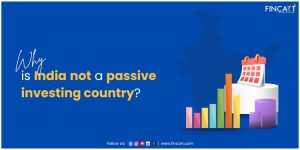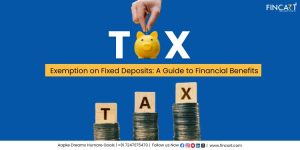Table of Contents
ToggleConventionally, bank FDs were a big success among investors. In 1995, SBI (State Bank of India) offered an interest rate of 13% for deposits of more than 3 years. Since the offer was quite attractive and Fixed Deposits were a low-risk investment, it gained major momentum. However, things started to change dramatically in the case of bank fixed deposits.
Returns commenced to decline and FDs were no longer a suitable investment option for people with high tax brackets. Whereas some old investors still derived comfort from FDs but again, within a few years their comfort was also shaken. Depositors have seen their deposits get stuck in cases of PMC Bank, and Yes Bank when RBI capped withdrawals.
For an investor, the objective of any investment made is to grow the value of assets over time and earn good returns by beating the high inflation rates. But FDs here failed to serve this purpose!
Is FD an Inflation Buster?
Sadly, the answer is no!
Inflation, a silent killer works on putting a damper on savings as it directs to a loss of the currency value. In the case of FDs, the interest rate is pre-decided, thus they remain unaffected by inflation.
However, if the rate of inflation exceeds the interest rate regime, the purchasing power of the money invested in FDs will be lost. Therefore, the real return on your FD will turn out to be negative.
For instance, you have invested 10 lahks for 10 years and you come under a high tax bracket, now considering the offer of Banks FD which is 5.4%, you will end up generating a post-tax return of 4.4 lakhs only. Therefore, your 10 lakh investment will grow up to 14.4 lakhs!
Now consider that inflation is 5% in the same period and you are needed to have grown to Rs 16.28 lakh in 10 years just to cover for the 5% inflation. Now since the FD rises to only Rs 14.4 lakh, in real terms, you would be poorer by close to Rs 1.9 lakh.
Considering mutual funds, have the potential to beat inflation and the capability to generate better returns. They can absorb the effect of the rise in the inflation rate, as the fixed-return instruments may be traded in secondary markets
Are FDs Taxable or not?
Apparently, the interest you gain on the fixed deposits is fully taxed. Not only this but the interest that is gained from FD is also charged with TDS (Tax deducted at source). However, banks focus on reducing the interest charged at the end of every year. There is an option to opt out from TDS and end up paying all the interest at the time of maturity.
What should FD investors then look at?
As India advanced, the FD rates started going down. Currently, the bank FD rates are somewhere between 4.5%-5.5%.
This drastic fall in FD rates has led investors to look for better returns. Who would want their hard-earned money to get a minimal return, when now there are abundant options to get good returns? Conservative investors and retirees who live on interest income have been badly hurt by their investments.
FD investors consider the safety of their money as their main objective. Hence, a few possible options are mentioned underneath serving safety purposes-
Debt Mutual Fund:
The return on debt mutual funds has been good until a year back. There are various areas where investment planning can be done under these funds like fixed-income instruments, government bonds, corporate debt securities, or money market instruments. Going forward the returns cast from Debt Mutual Fund will beat the returns you get from FDs!
Guaranteed Income Plan:
Guaranteed income plans, initiated by life insurance companies provide guaranteed tax-free returns between 5.50%-6.25%. This return can come in any form be it an annuity or deferred annuity or even lump sum maturity payments.
Dynamic Asset Allocation:
This Mutual Fund scheme has equity+debt mutual funds. The equity portion is dynamically managed. When the market is high, the equity portion is kept at a low level and when the stock market goes down then the equity exposure is increased. This is mainly formula-driven.
Also Read: Importance of Asset Allocation in Retirement Portfolios




